Transition Interview #6: Bryce Hansen, Artist and Special Forces Veteran.
Creating art to inspire internal conversation, understanding love and sex, and why not knowing what you want to do post-military isn't all that unique.
In the literature space, it’s often advised that writers pay close attention to the three-way relationship that exists between author, character(s), and reader. Lisa Ziedner’s book “Who Says? Mastering Point of View”, describes the three as being engaged in a never ending dance. At times space must exist between the three, other times they must be locked in step, speeding up and slowing down, but the three can never stop dancing.
Last week, I spoke with Veteran artist Bryce Hansen. We discussed how art, in all forms is capable of a fourth relationship. One that exists between the viewer and themselves, and how, after years of creating art, inspiring others to reckon with their own experience keeps him motivated to create.
Before art, Bryce served as Field Artillery Officer and Green Beret. We discussed his unique path to Special Forces, his motivation to understand the concept of love through art, and concluded with some advice on things he wished he’d known before leaving the military.
I hope you enjoy this interview and if you’ve not subscribed to The TRANSITION please consider as increased subscription levels engage the Substack algorithm, and ultimately leads to this information being seen by more Vets, and better content.
Thanks for doing this, Bryce. How long have you been out of the Army?
I was in the Army from 96’ to 2012 and then contracted in Dubai for five years afterward.
And you started out at West Point, I presume?
No, actually, I was enlisted for a couple of years. I joined the Reserves in high school, went to basic training between my junior and senior year.
Really? I didn’t know that was possible, and you ended up getting into West Point?
Sort of. In our town, every kid went to college. I think 4 or 5 even went to service academies.
At the time, I couldn't even get into state schools.
I joined the Reserves as an enlisted guy, and a lot of people I remember were like, “What's wrong with you”? This was pre-9/11, so people didn't get why anyone would elect to join the military.
My senior year, I got in some trouble and was sent to this program in Chicago; a church-type reform program. So, I went up there and I was supposed to show the courts I was getting my life together, but I still had to do my Reserve duty, one weekend a month.
Well, one day, the 1st Sergeant of this unit I was reporting to, pulls me aside, and he's like, “Why are you here?” I think my being there confused him.
Here’s this kid from Indiana, trained as an artillery mechanic, assigned to a Headquarters division in Illinois.
Anyway, this 1st Sergeant made it his mission to get me into West Point, and he did.
So, you didn’t have the grades to get into Indiana University, and this guy got you into West Point? Amazing.
Crazy right? West Point had a program where they would fill each class with a percentage of enlisted folks.
During the whole process, I didn’t even really know what a service academy was. I grew up watching Army vs. Navy football, and I just thought, oh they get a bunch of soldiers and sailors off the ships and make them play football.
What a story. So did you go into Special Forces from there?
No. It’s a little different in the Army. In the Navy, you can become a SEAL officer immediately after commissioning? In the Army, you have to be a Captain with 4 or 5 years before you can try out for Special Forces.
I see, so you deployed in a conventional unit as well?
I did. I commissioned in Field Artillery, went to Korea and did some forward observer work, then to Germany, where my unit got reflagged as Infantry, then to Iraq for 15 months.
Primarily in northern Iraq but then down around Ramadi during the Sunni awakening in 2006.
At that time, I didn’t really know what a Green Beret was, but when we were over there, we shared our site with a 1st Group team. I’d been to Ranger School, so my leadership made me the SF Liaison between our unit and theirs.
I remember talking to those guys and asking them, "So you guys just do whatever out there to win? Whatever you think makes sense?”
They’d respond, "Yeah, what do you guys do, whatever doesn’t make sense?” And we definitely did a lot of stuff that didn’t make sense. That really struck me.
I admired the way they did business.
Talking with people who've deployed with conventional and non-conventional type units is always interesting. Fifteen months is an insane amount of time to be deployed, but hopefully you gained something from that. So, did you try out after that?
I did. I got home from Iraq, and I’d gotten married. The unit I was with was slated to be home for only six months and then go to Afghanistan for 18 months.
My new wife at the time was like, “What the fuck?” Why did I marry this guy I’m never going to see?”
So, half the reason I tried out for Special Forces was because I knew it'd keep me around North Carolina for a year or two, and maybe I could keep my marriage intact.
I’ve never heard of anyone going to a selection course in an effort to strengthen their marriage. Was art part of your life during these years?
Not really. When I was an Artillery guy, I carried around this notebook, and I'd draw different things I'd see. Guys collected coins or patches or whatever their thing was. I carried around this book and would draw different locations.
Eventually, my bag was stolen in Barcelona, and the book was gone. It devastated me, and I stopped all art for about seven years.
That’s awful. So, you picked up painting as a civilian?
Well, I’ve been making art since elementary school like all kids, but yeah, the kind of stuff I’m doing now, I never did in the military.
When I got out, I was looking for something to help me conceptualize ideas, to make it easier to spend time with the stuff I wrestled with in my mind.
Art was a hobby as a kid, but now I paint because I have to, you know? I feel like I can't live without creating. If I don't do it, I start to feel like shit.
I understand. Your work, perhaps because I am a Veteran, it’s thought-provoking. It solicits a lot internally. Powerful in that way. Is that something you’re striving for?
Definitely now.
My work has changed a lot over time, but all of it is somehow tied to the idea of love, the different ways love presents itself, and using art to show some of the things I’ve struggled to communicate or understand with words.
In the beginning, I did a lot of female realism, nudes, and sexualized stuff. I think I was trying to understand the meaning of love and the difference between love and sex.
At one point, a mentor in the art space said, "Look, you have some talent. Have you considered subject matter from other areas of your life?”
So, I gave that a shot, and that's when a lot of the veteran-centric art started to come out.
The female stuff was also somewhat explicit. I have a daughter who’s 11 now. My view of femininity and sexuality has changed as a result of being a father, and my marriage isn't the same as it was ten years ago. It's more mature.
My art is still about trying to understand love but other aspects and dimensions of it.
The mechanism stayed the same, but you’ve shifted to other areas of your life.
That’s right.
A year ago, I had a psychedelic experience through VETS, and I became interested in exploring the stuff I’d seen during my experience.
That led to the Screaming Soldier series, which is still connected to the concept of love, but it was the psychedelics that helped me visualize more abstract ideas and see love in a much deeper and more potent way.
Those pieces are powerful.
Thank you. I did an art show a while back and brought 12 pieces. Ninety-nine percent of the conversations I had during the show were centered around one piece, the Screaming Soldier.
I think that’s because that emotion is one a lot of Vets recognize, but they contain the desire and even feel bad about having it a lot of the time. They hold things in as a courtesy to friends, families, coworkers, whatever. Like a hesitation to fully express how they feel about what happened in the military.
And maybe that’s all people, not just Vets. We hold back how we feel as a social courtesy to those around us.
That makes a lot of sense. Less about what is being projected and more about the ability to project anything at all, or what is true.
I think that's right, but then again, if I could explain it entirely, I wouldn’t have to paint it. Most of my art doesn’t have a concrete meaning or underlying direct message for a large audience. It's a concept I'm trying to capture that's in my mind. Others can derive their meaning as it speaks to them.
It’s just something that I hope encourages people to think. Interpret it on their own, and subsequently, they have a conversation with themselves.
I get it. I’ve not thought this through fully, but it seems that the effect you're describing is what we're looking for when we take in art, holistically, what we like about art, regardless of type.
Absolutely. It could be music, writing, a sculpture, whatever.
That process is hard. It takes a lot of effort to think critically. Painting has helped me a lot, but what keeps me going is knowing that people see my paintings and then have a conversation with themselves as a result.
Good for you. I think that’s something to be proud of. Especially in the Vet space where so many GWOT participants are processing the last 20 years. What does the future look like for you? Is there a plan for all this?
No. I still have a full-time job and everything. If people want to buy the art, that's great, and I appreciate it. But right now, I’m just trying to paint and see what becomes of it.
I've done some commissions, and that can be challenging. I feel as if, at least at this point, I can “produce” and I can “create.” But getting both on the same canvas, I still need to figure that out. I prefer to create my own pieces, and folks are free to buy them. Producing doesn’t have the same level of satisfaction as creating does.
Well, thank you for doing this, Bryce. I'll ask you one last question, the same one I've asked everyone who's been part of this series: if you were to talk to a young Bryce Hansen, looking at getting out of the Army a year from now, what would you want him to know?
When I finished contracting, I was interviewing for jobs here in Texas, trying to network and figure it all out. A few weeks into it, I asked a mentor of mine, an older gentleman worth multiple millions, if he would join me for a cup of coffee.
He asked me how interviews were going, and I said, "Horrible. I still have no idea what I want to do in life, and I'm 40 years old."
He says, "I've been involved with every kind of corporate gig, private sector, public sector, finance, construction, you name it, I've done it. Not a single time in my career was I sure what I 'wanted' to do.”
When I talk to guys separating now, I tell them it's okay to feel that way. You look around at all your civilian buddies, and you see people who claim to enjoy their jobs, and you start to think, shit, what’s wrong with me? I don’t want to do any of those jobs.
That can be really isolating.
I think it’s important to know that's normal. And if that's too much for you, or it’s too overwhelming, maybe you stay in the military.
But everyone gets out someday, and you have to have that conversation at some point.
You can find Bryce’s work on Instagram at @bryce.n.hansen and on LinkedIn here.


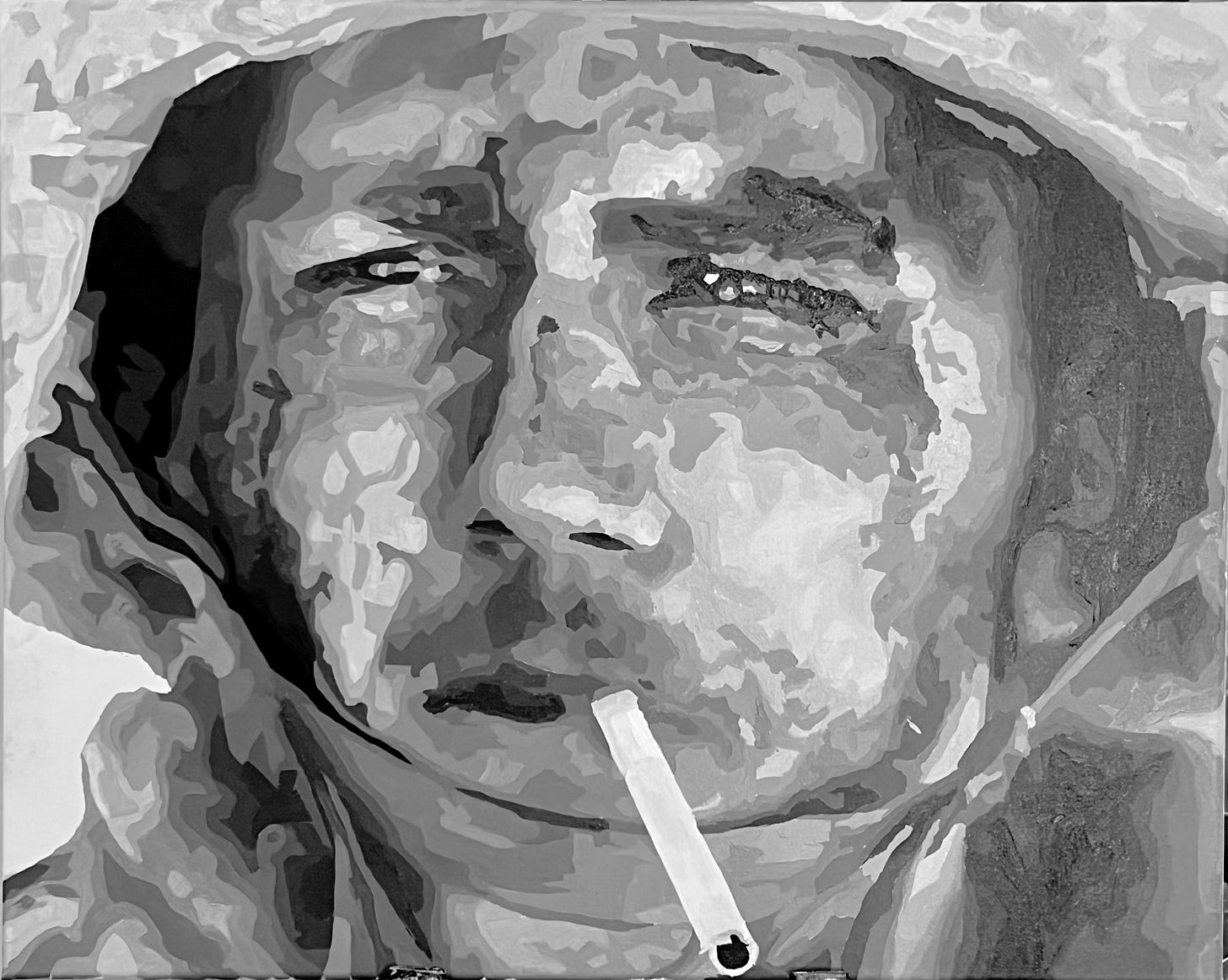
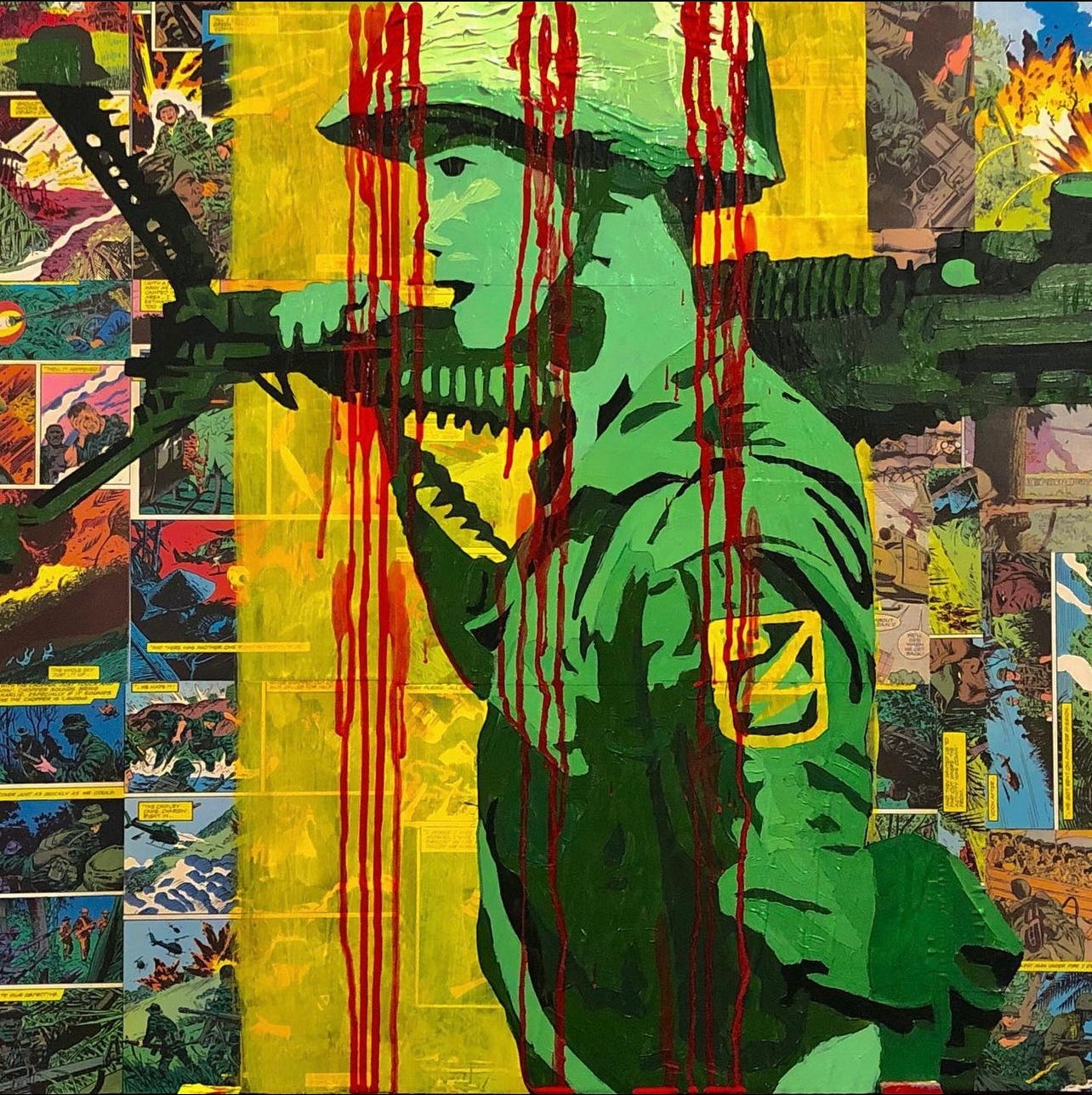

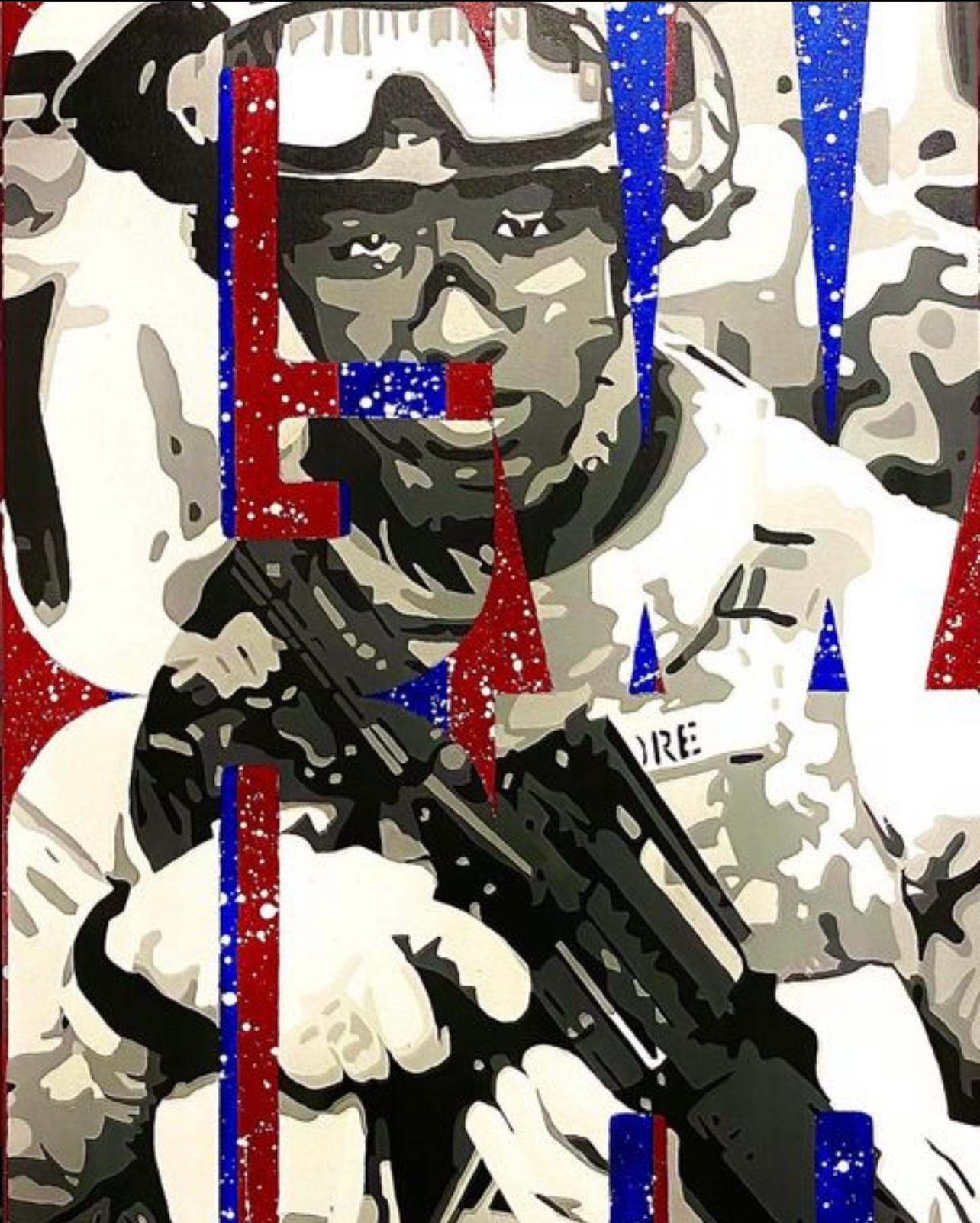
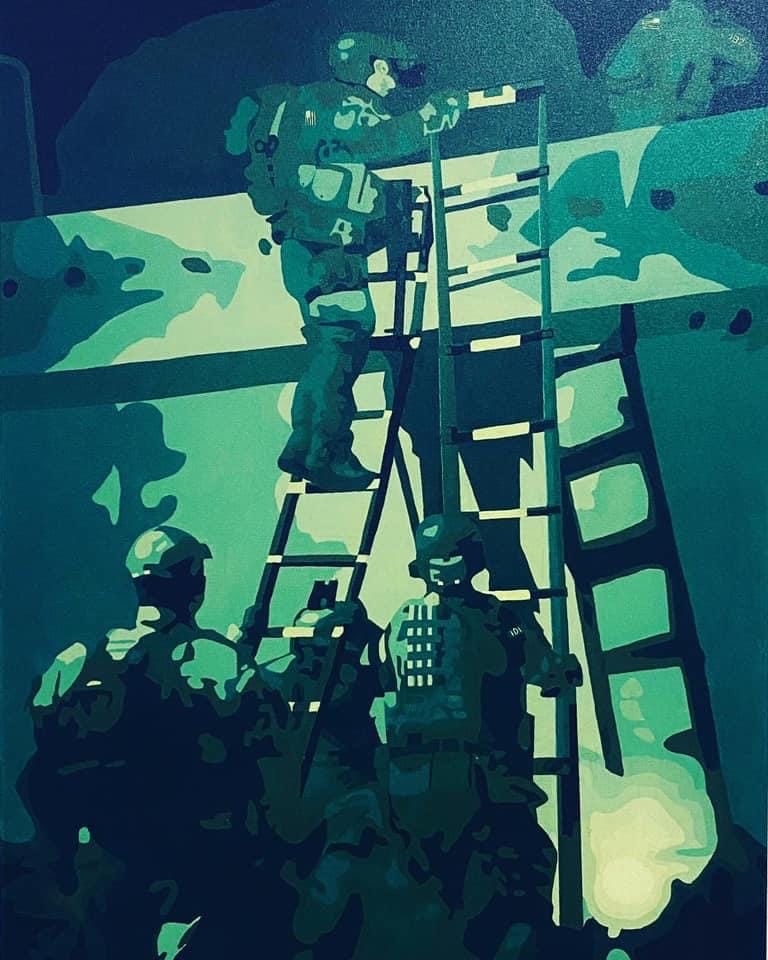
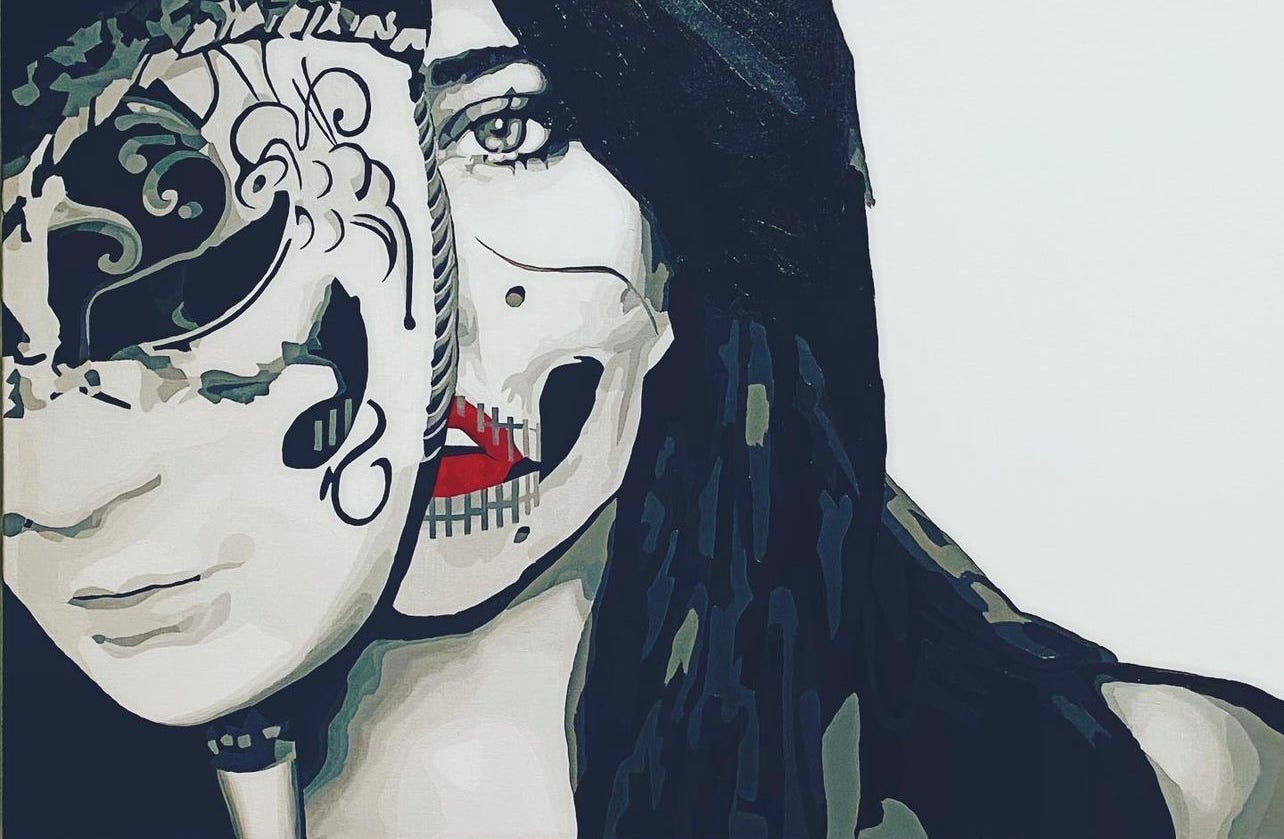

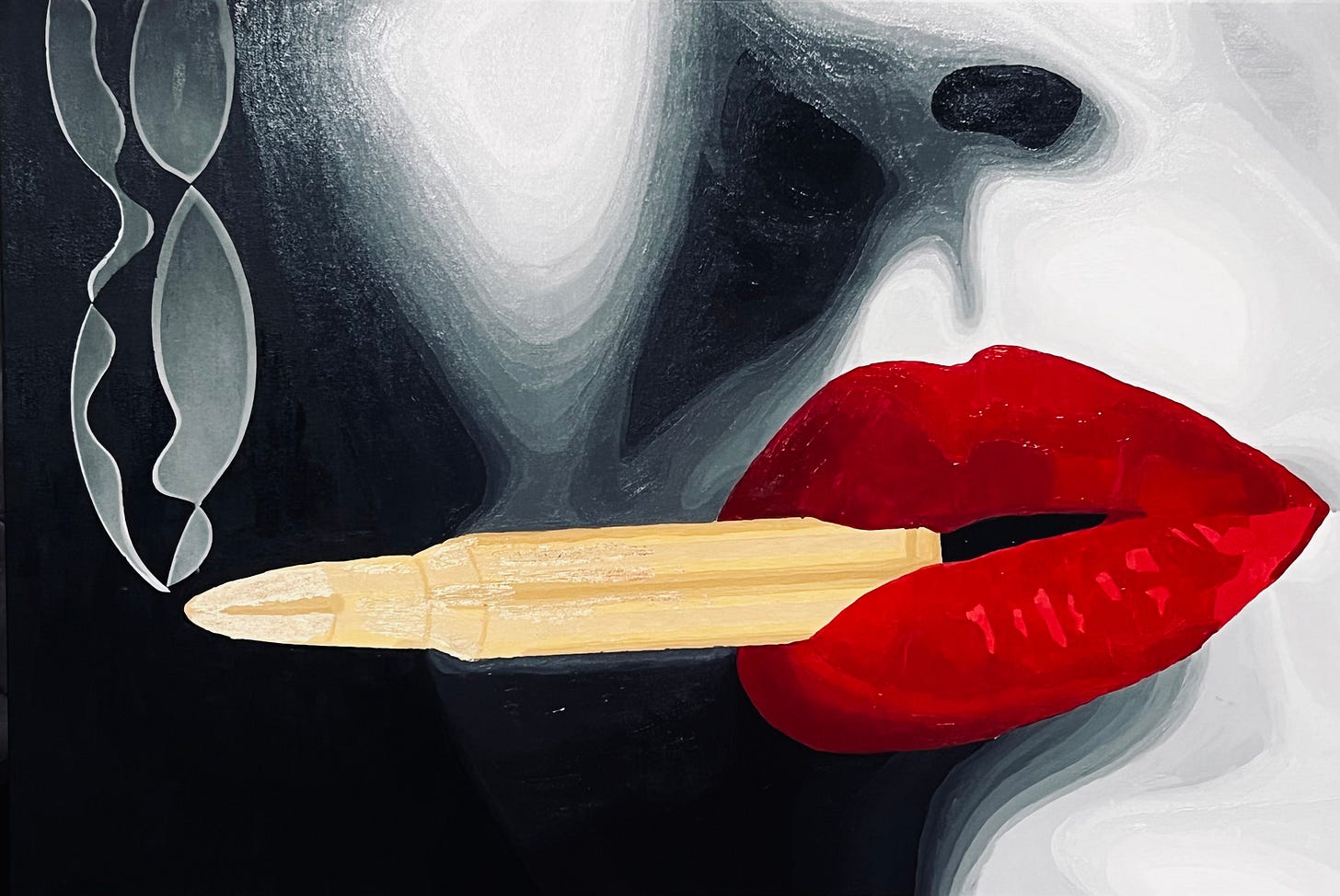
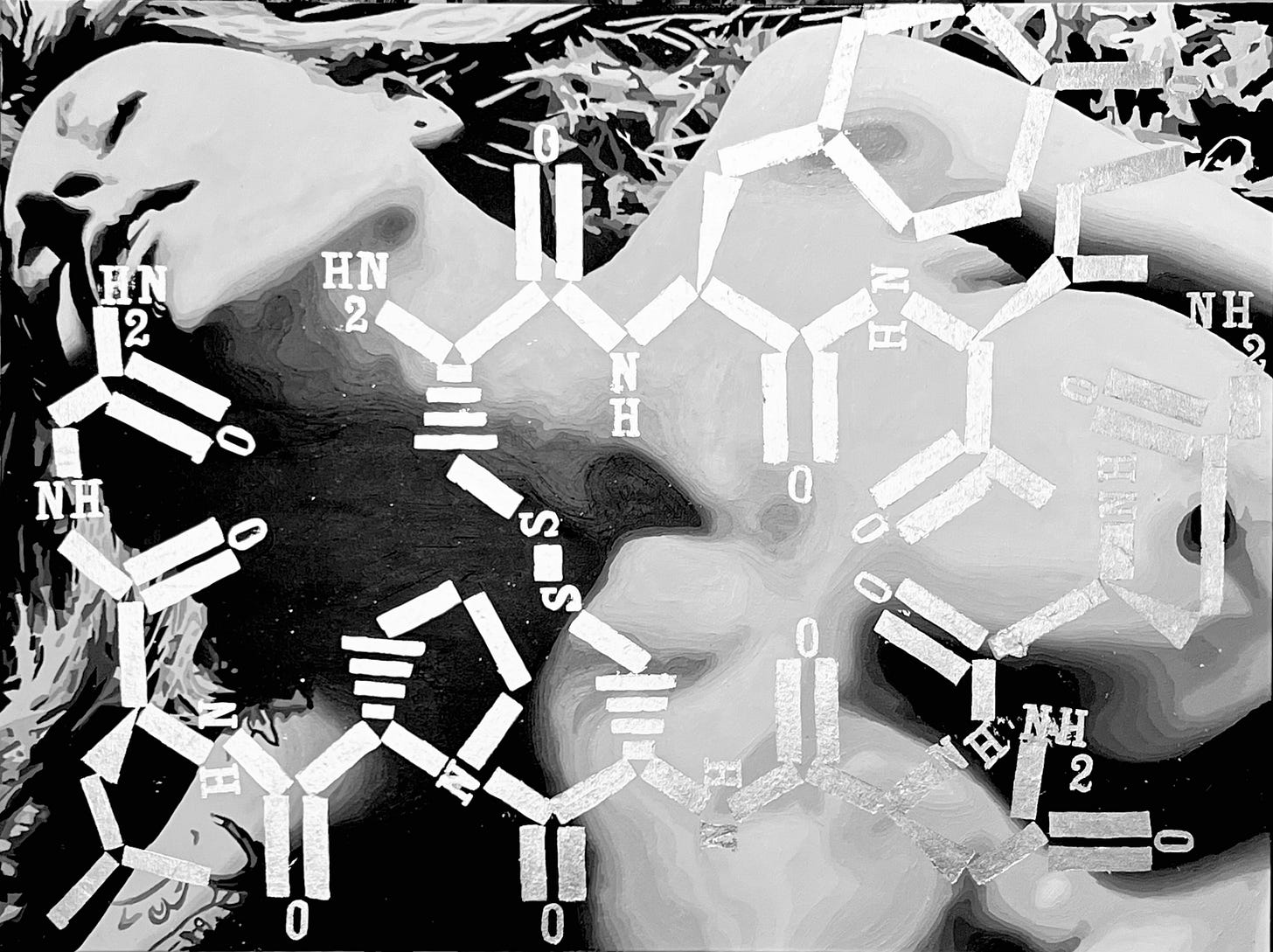


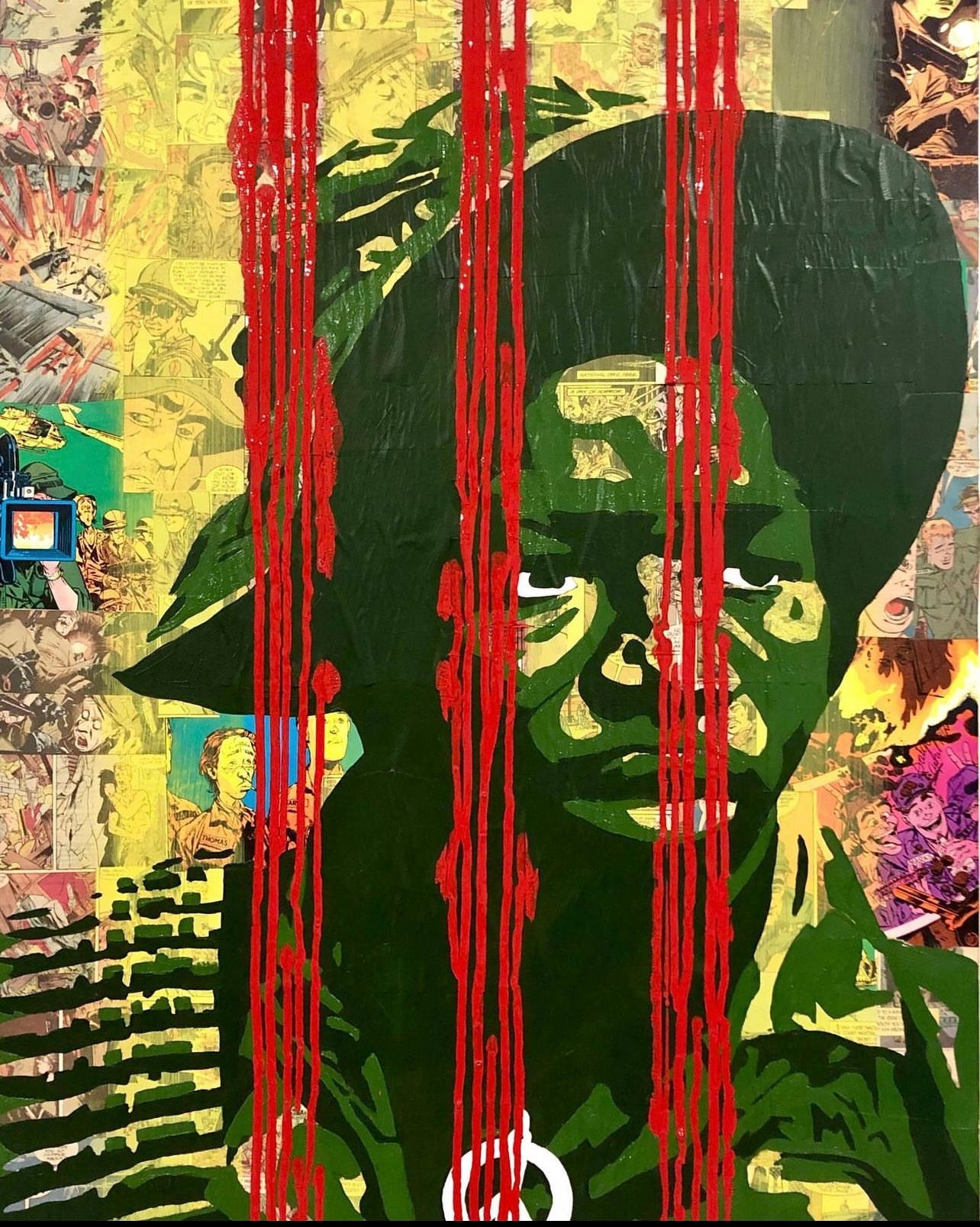

Thanks Derek! I appreciate that. Bryce is the real talent here!
The art in this article has a depth and soul to it that is hard to describe. I think your interview helps add context to the pieces provide and humanize what is being presented. Well done.